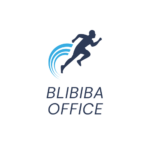Sports Nutrition Resources
- Importance of Nutrition: Proper nutrition is vital for enhancing athletic performance, recovery, and overall health, making it essential for both amateur and professional athletes.
- Key Nutritional Components: Athletes should prioritize carbohydrates for energy, proteins for muscle repair, healthy fats for overall health, and a variety of vitamins and minerals for optimal bodily functions.

- Diverse Resources Available: Sports nutrition resources include books, online courses, professional consultations, and reputable websites that provide tailored strategies for dietary needs.
- Utilization of Nutrition Apps: Sports nutrition apps help athletes track their food intake, manage hydration, and offer personalized meal plans, improving dietary habits effectively.
- Educational Platforms: Trusted organizations like ACSM, NSCA, and GSSI provide research-backed articles, webinars, and courses to keep athletes informed about current nutrition practices.
- Community Support: Online forums and communities allow athletes to share experiences and strategies, fostering collaboration and learning in sports nutrition.
In the world of athletics, fueling the body with the right nutrients is crucial for peak performance. Athletes, whether professional or amateur, need to understand how to optimize their diets to support training and recovery. That’s where sports nutrition resources come into play, providing valuable insights and guidance tailored to individual needs.
From meal plans to hydration strategies, these resources help athletes make informed choices about what they eat and drink. With the right information, they can enhance their endurance, strength, and overall health. Exploring these resources not only empowers athletes to reach their goals but also fosters a deeper understanding of the vital role nutrition plays in sports.
Understanding Sports Nutrition
Sports nutrition focuses on the dietary needs of athletes, ensuring they fuel their bodies for optimal performance and recovery. Proper nutrition plays a critical role in maximizing an athlete’s potential and supporting overall health.
Importance of Proper Nutrition in Sports
Proper nutrition enhances athletic performance. Balanced meals provide the necessary energy to sustain training sessions and competitions. Nutrients support muscle repair after exercise, reducing recovery time.
Inconsistent diets can lead to fatigue and decreased performance. For example, inadequate carbohydrate intake may limit stamina during events, while insufficient protein can hinder muscle recovery. Athletes benefit from personalized meal plans tailored to their specific training regimens and goals.
Key Nutritional Components for Athletes
Key nutritional components include carbohydrates, proteins, fats, vitamins, and minerals.
- Carbohydrates: Provide primary energy for high-intensity activities. Complex carbs like whole grains and fruits sustain energy levels.
- Proteins: Support muscle repair and growth. Lean sources such as chicken, fish, and legumes are essential post-exercise.
- Fats: Contribute to energy storage and hormone production. Healthy fats from nuts, seeds, and avocados promote overall health.
- Vitamins and Minerals: Support various bodily functions, including metabolism and immune response. Fruits, vegetables, and fortified foods supply these vital nutrients.
Understanding these components enables athletes to create balanced diets that meet their energy needs and recovery demands.
Types of Sports Nutrition Resources
Sports nutrition resources come in various formats, offering essential support for athletes aiming to enhance their performance and recovery. These resources provide tailored strategies to align diet with athletic goals.
Books and E-Books
Books and e-books serve as foundational resources for athletes at all levels. They cover a range of topics, including nutrient timing, meal planning, and specific dietary regimes suited for different sports. Popular titles often feature plans from registered dietitians and nutritionists, providing evidence-based information. For example, “Sports Nutrition for Endurance Athletes” offers strategies on carbohydrate loading and hydration tactics. E-books provide the added benefit of accessibility, allowing athletes to consume content on any device.
Online Courses and Webinars
Online courses and webinars present interactive learning opportunities for athletes. These platforms cater to various topics, such as macronutrient distribution, supplementation, and recovery strategies. Designed by experts in the field, courses often include quizzes, assignments, and certifications to reinforce learning. Webinars frequently allow direct interaction with instructors, enabling attendees to ask questions relevant to their specific concerns. Both formats cater to busy schedules, offering flexibility to learn at one’s own pace.
Professional Consultations
Professional consultations with sports nutritionists offer personalized guidance based on individual needs and goals. These consultations evaluate an athlete’s current diet, training regimen, and performance metrics to create customized nutrition plans. Specialists can address specific issues like nutrient deficiencies or dietary restrictions. By collaborating with an expert, athletes gain insights into optimizing recovery, energy levels, and overall health. Regular follow-ups ensure adaptations as training intensity and goals evolve.
Popular Sports Nutrition Websites
Numerous websites provide valuable resources for athletes seeking guidance on nutrition. These platforms offer research-backed information, meal plans, and expert advice tailored for various athletic needs.
Overview of Trusted Platforms
- American College of Sports Medicine (ACSM)
ACSM delivers evidence-based guidelines on physical activity and nutrition. Their resources include articles and position statements related to sports nutrition.
- National Strength and Conditioning Association (NSCA)
NSCA offers comprehensive insights into nutrition for strength and conditioning. Their website features various resources, including webinars focused on sports nutrition topics.
- The Gatorade Sports Science Institute (GSSI)
GSSI emphasizes hydration and nutrition’s role in athletic performance. Their research articles and resources cater to both athletes and coaches.
- Precision Nutrition
Precision Nutrition provides in-depth courses and certification programs for nutrition coaching, focusing on personalized strategies for athletes.
- Sports Nutrition Association (SNA)
SNA offers educational resources and certifications for nutrition professionals. Their platform focuses on advancing sports nutrition knowledge for athletes and practitioners alike.
- Research Articles
Websites like ACSM and GSSI publish peer-reviewed research articles covering various topics in sports nutrition, providing athletes with the latest scientific findings.
- Meal Planning Tools
Precision Nutrition offers meal planning templates and calculators, helping athletes create personalized diet plans based on their training needs.
- Webinars and Online Courses
Numerous platforms feature webinars and courses focusing on critical aspects of sports nutrition, allowing athletes to learn from industry experts conveniently.
- Podcasts
Several websites host podcasts dedicated to sports nutrition, where experts discuss current trends, practical tips, and athlete success stories.
- Community Forums
Online forums and communities foster interaction among athletes and nutrition professionals, enabling the exchange of advice, experiences, and strategies in sports nutrition.
Utilizing Sports Nutrition Apps
Sports nutrition apps serve as convenient tools for athletes seeking to improve their dietary habits. These apps provide customizable features that assist in meal tracking, nutrient analysis, and hydration management, supporting athletes in their training and recovery processes.
Benefits of Using Nutrition Apps
- Real-Time Tracking: Nutrition apps streamline the process of logging food intake, helping athletes monitor their daily caloric and nutrient consumption effectively.
- Personalization: Apps offer tailored meal plans based on individual goals, preferences, and dietary restrictions, ensuring that athletes meet their unique nutritional requirements.
- Hydration Monitoring: Many apps include hydration tracking features, prompting athletes to maintain optimal fluid levels for peak performance.
- Education Resources: Nutrition apps often provide valuable educational content about macronutrients, micronutrients, and meal timing strategies, enhancing athletes’ understanding of nutrition’s role in performance.
- Progress Tracking: Athletes can track changes in body composition, performance metrics, and energy levels over time, allowing for adjustments to their nutrition strategies as needed.

- MyFitnessPal: This app offers an extensive food database, easy logging features, and nutrient tracking, making it suitable for both beginners and experienced users.
- Cronometer: Known for its comprehensive nutrient tracking, Cronometer provides detailed reports on vitamin and mineral intake, ideal for athletes focused on micronutrient balance.
- Lose It!: A user-friendly interface allows athletes to set weight or performance goals and track their meals while providing insights into caloric intake and expenditure.
- Eat This Much: This meal-planning app generates personalized meal plans based on dietary preferences and caloric targets, simplifying the process of maintaining a balanced diet.
- HydraCoach: Focused exclusively on hydration, HydraCoach helps athletes track their water intake and offers reminders, ensuring they remain adequately hydrated during training.
Achieving Athletic Excellence
Athletes have a wealth of resources at their fingertips to enhance their nutrition and performance. By leveraging these tools and platforms, they can gain valuable insights that lead to informed dietary choices.
Whether through professional consultations or utilizing innovative apps, athletes can tailor their nutrition to meet specific training demands. The combination of expert guidance and technology empowers them to monitor their progress effectively.
Ultimately, prioritizing nutrition not only fuels their performance but also supports long-term health and well-being. Embracing these sports nutrition resources is a crucial step toward achieving athletic excellence.



